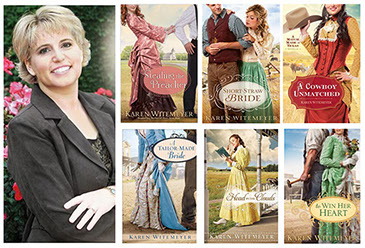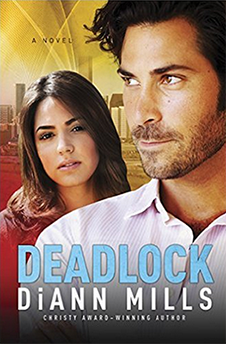![]()
GUEST EDITORIAL
The State of Christian literature
by Rachel McCrae
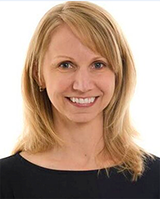 In my role as the senior book buyer for LifeWay Christian Stores, everyone thinks I’m such a well-rounded reader. That I’ve read all of this year’s top new releases from all of the popular writers as well as all of the Christian classics. They expect that I’ve read enough books to sniff out a bright new voice and that I’ve devoured the popular “it” book of the moment.
In my role as the senior book buyer for LifeWay Christian Stores, everyone thinks I’m such a well-rounded reader. That I’ve read all of this year’s top new releases from all of the popular writers as well as all of the Christian classics. They expect that I’ve read enough books to sniff out a bright new voice and that I’ve devoured the popular “it” book of the moment.
Can I admit something?
I’m not the well-rounded reader that everyone thinks I am. I do read a lot of nonfiction throughout the year, but I am mainly a Christian fiction reader. I’m personally just a fan of fiction, so it’s easy for me to gravitate to it. And also, one of our most regular customers at LifeWay is the fiction reader. Our best shopper comes in many times a year and buys multiple titles at a time. That fact alone should have me reading novels often so I can make sure I’m giving them some amazing books to choose from.
I’ve had people challenge me in both my personal circles as well as my professional ones that Christian fiction just seems like it is dying. Publishers aren’t printing as many. Authors seem to be pushing the envelope on content, leaving the Christian reader feeling uncomfortable. eBooks are affecting sales of print books.
I totally agree with all of that.
Then I quickly tell these naysayers about all of the amazing things that are going on with Christian fiction.
While publishing houses may be scaling back some on the number of novels they produce, they are getting more focused. This in turn is giving us some of the best new voices that our market has seen in years. They are investing in these novelists and helping to bring their talents to our shelves. Many of them are some of our favorite new writers today.
I’m excited about the novelists who are committed to writing for the Christian market. They see their books as a ministry and strive to give us entertaining and powerful stories that have faith threads woven throughout. I love the books in which the characters are facing difficult and messy situations that I can relate to and where I can see them working their faith out during the story. That’s what I strive to do in my life — so it’s cool when I can see that in a book, whether it’s set in Regency England or a small Southern town in present day.
And the nugget that I love sharing about Christian fiction? I personally believe it’s one of the easiest witnessing tools we carry in our stores outside of the Bible. If you have a friend you want to share your faith with but might not be comfortable in handing them a Bible or a book by John Piper, consider a great novel. Your friend will not only enjoy an amazing story but will also see glimpses of the grace, mercy, joy, and love that we experience in a life lived with God.
So while yes, things have changed in recent years for Christian fiction and will continue to, I’m sure. But I’m confident that it’s best days are ahead. If you haven’t picked up a Christian fiction title in awhile, now is a great time to pick one up. I think you’ll be pleasantly surprised by the quality of writing and storytelling you’ll find.
* * * * *
Rachel McRae has been with LifeWay Christian Stores for seventeen years and is currently the senior book buyer for the chain. Stay in touch with her through Twitter or through her blog, Shelf Life.

LONE STAR LISTENS interviews
Karen Witemeyer: Wit and wisdom in pursuing the writing life
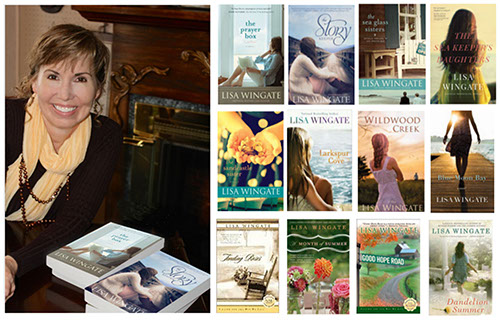 Lisa Wingate: On keeping the joy and magic in literary creation
Lisa Wingate: On keeping the joy and magic in literary creation

![]()
Bethany House author Becky Wade on social media—and her latest books
by Kay Ellington, Publisher
LONE STAR LITERARY LIFE: At ACFW 2015, you’ll be co-teaching a class at ACFW on social media — a technology that seems to have really changed publishing and literature. Were you an early adapter or did you have to gradually warm up to social media?
BECKY WADE: I had to gradually warm up to it! Social media didn’t appeal to me at all at first. I didn’t understand how to use it and so was intimidated by it. Also, many people mentioned to me how time consuming it could be. As an author, wife, and mom to three, I wasn’t exactly eager to embark on something that would demand oodles of my time.
Finally, reluctantly, I dipped my toes into Facebook in 2011. Yes, there was a learning curve. But through the input of friends and trial-and-error I figured it out and was surprised by how much fun it was.
Since then, I’ve slowly added one platform a year. I enjoy them all!
What are some simple things that authors can do to make the most of social media?
- View your social media interactions the way you’d view your interactions at a cocktail party. Talk a small amount about yourself. Ask questions. Reply to questions posed to you. Discuss interests of yours outside the world of books/reading/writing. Support others. Be yourself.
- Download the apps of your social media sites onto your phone so that you can be active on those sites during times when you’re otherwise inactive (waiting in line, sitting in the doctor’s office, parked outside your child’s karate class). Not only can you comment on other people’s posts via your phone but you can post new content in seconds.
- Browser buttons make it a snap to share something you find on the web. I use Pinterest’s browser button to pin to that site and I use Buffer’s browser button because it automatically creates tweets for twitter. For example, if I read a blog post I love, I hit the Pinterest browser button, select which image I want to pin and which board I want to pin it to and — that quick — my Pinterest followers begin seeing the content.
Let’s talk a little about your own books. Your latest novel deals with Post-Traumatic Stress Disorder. That’s a compelling and unusual topic for a romance novel. What inspired you to write about this subject?
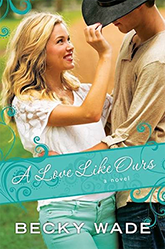 I was inspired to write Jake, the hero of A Love Like Ours, (a Porter Family Novel #3, May 2015) through the stories I’ve read in print and watched on TV about our veterans who struggle with PTSD. I was moved and humbled by the courage of these men and women who encountered trauma in the line of duty.
I was inspired to write Jake, the hero of A Love Like Ours, (a Porter Family Novel #3, May 2015) through the stories I’ve read in print and watched on TV about our veterans who struggle with PTSD. I was moved and humbled by the courage of these men and women who encountered trauma in the line of duty.
What’s the rationale behind the novella?
Novellas are approximately one quarter to one half the length of a novel. They're short enough to read in one afternoon, but so rich in story that they still entertain and satisfy.
The origins of the novella reach all the way back to the Renaissance! Many famous movies were based on them. For example: Shawshank Redemption, Breakfast at Tiffany’s, The Graduate.
Twenty years ago, I can remember publishers occasionally releasing novella collections (print books that contained three or four novellas). Nowadays, novellas are finding new popularity because of three factors: 1) People are busy in 2015! We enjoy reading something we can complete in a single sitting. 2) Novellas are no longer restricted only to print. Authors can release novellas as standalone e-books, which has made them far more widely available. 3) Standalone novellas are very reasonably priced.
And you have a new book coming out in November, too. What’s it about?
Yes! Love in the Details is my first-ever novella. It’s about a volunteer wedding coordinator named Holly and the boyfriend she once loved and hasn’t seen in eight years, Josh. When Josh returns to their small hometown in Texas he and Holly join forces to plan Josh’s best friend’s wedding, and they have to confront their feelings for each other and the secret that separated them long ago.
Since Lone Star Literary Life is for Texas readers and authors, what Texas Christian fiction do you read and recommend?
For historical romance I recommend Texas authors Deeanne Gist and Karen Witemeyer. For women’s fiction I recommend Kellie Coates Gilbert.
Why and when did you decide to become a writer, Becky?
I met my husband while we were both attending Baylor (Sic ’em Bears!). We married in 1993, and shortly afterward my husband’s job took us to the Caribbean. I couldn’t work there because of work permit restrictions, so I found myself with a great deal of time on my hands. I’d always loved to read, but until that season and that situation I’d never considered becoming a writer. I had a computer, an imagination, and a story idea, so it occurred to me that I could at least sit down and attempt to write a few chapters of a novel. Little did I know how much that one decision — to try writing — would impact my life! I fell in love with it right away and twenty years later, I’m still at it.
Who gave you your first break and made you realize that you could really be a successful writer?
After four years of writing and receiving nothing but rejections, a brand new editor at Avon named Monique Patterson bought one of my manuscripts. I still think of her with tremendous fondness.
I attended the Romance Writers of America conference in 2013. One of my books was nominated for a RITA, and so was one of the books she’d edited! She’s still in the business.
How has publishing changed since you started? And how has Christian fiction changed since you started?
When I started writing, traditional publishing was the only avenue available to authors. It was extraordinarily difficult to sell a manuscript to a publishing house and the majority of writers never managed to break in. If you did manage to sell your novel, the downside was that you’d likely be paid very little. The upside, in the mass market paperback world at least, was that your publisher would print a large number of copies and distribute them widely.
Once they released your book, publishers tended to sit back and watch to see whether it flourished or floundered. New authors didn’t typically receive much marketing support and there wasn’t a lot that authors could do to help themselves either. Social media didn’t exist. Back in those days we marketed our books by mailing ARCs to booksellers, maintaining a web site, sending out bookmarks, and scheduling the occasional book signing or speaking engagement.
Since my first Christian fiction title released in 2012, I’ve seen more and more modern voices emerge in the market. Many of us are writing contemporary settings with flawed characters dealing with relatable struggles. I’m always thrilled when I hear from teenagers who’ve discovered my books.
* * * * *
Read more about Becky Wade at www.beckywade.com.

LONE STAR LITERARY COVERAGE KICKS OFF SEPT. 6
American Christian Fiction Writers Conference
Sept. 17 – 20, in Dallas
Each year hundreds of veteran authors and those just learning the craft of Christian fiction come to ACFW to gain from the insights of industry professionals; to interact with other writers; and to present their ideas to agents and editors looking for stories like theirs, or to mentors who can help them move forward in their writing career. The conference culminates with the Awards Gala, during which ACFW’s prestigious Carol Awards, Genesis Contest winners, and other industry honors will be recognized.
Lone Star Literary Life’s coverage of this national fiction convention in Dallas begins today. This week and next, we’ll bring you:
- Profiles of Texas Christian authors Lisa Wingate and Karen Witemeyer
- Previews of key ACFW events in Dallas
- Podcasts with Texas Christian authors DiAnn Mills, Allison Pittman and Lisa Wingate
- An overview of the state of Christian literature
- And more
 Houston author DiAnn Mills on Christian romantic suspense—and real life
Houston author DiAnn Mills on Christian romantic suspense—and real life
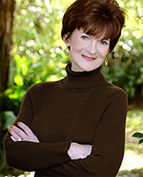 DiAnn Mills, Christian suspense author from Houston, takes listeners behind the scenes of her books and her writing life in this week’s podcast interview with Ally Bishop.
DiAnn Mills, Christian suspense author from Houston, takes listeners behind the scenes of her books and her writing life in this week’s podcast interview with Ally Bishop.

